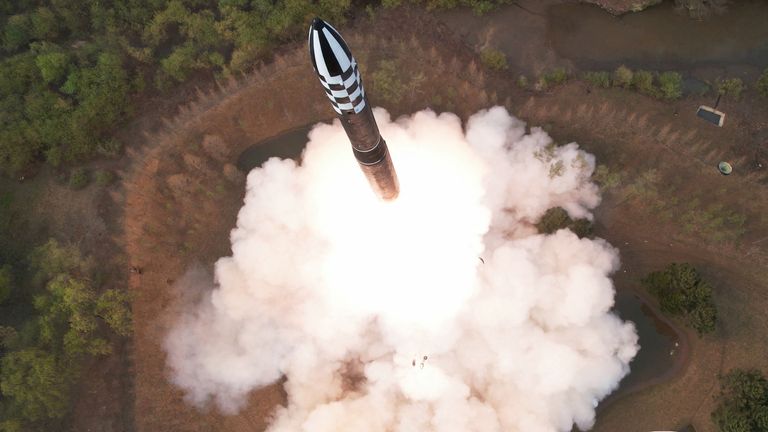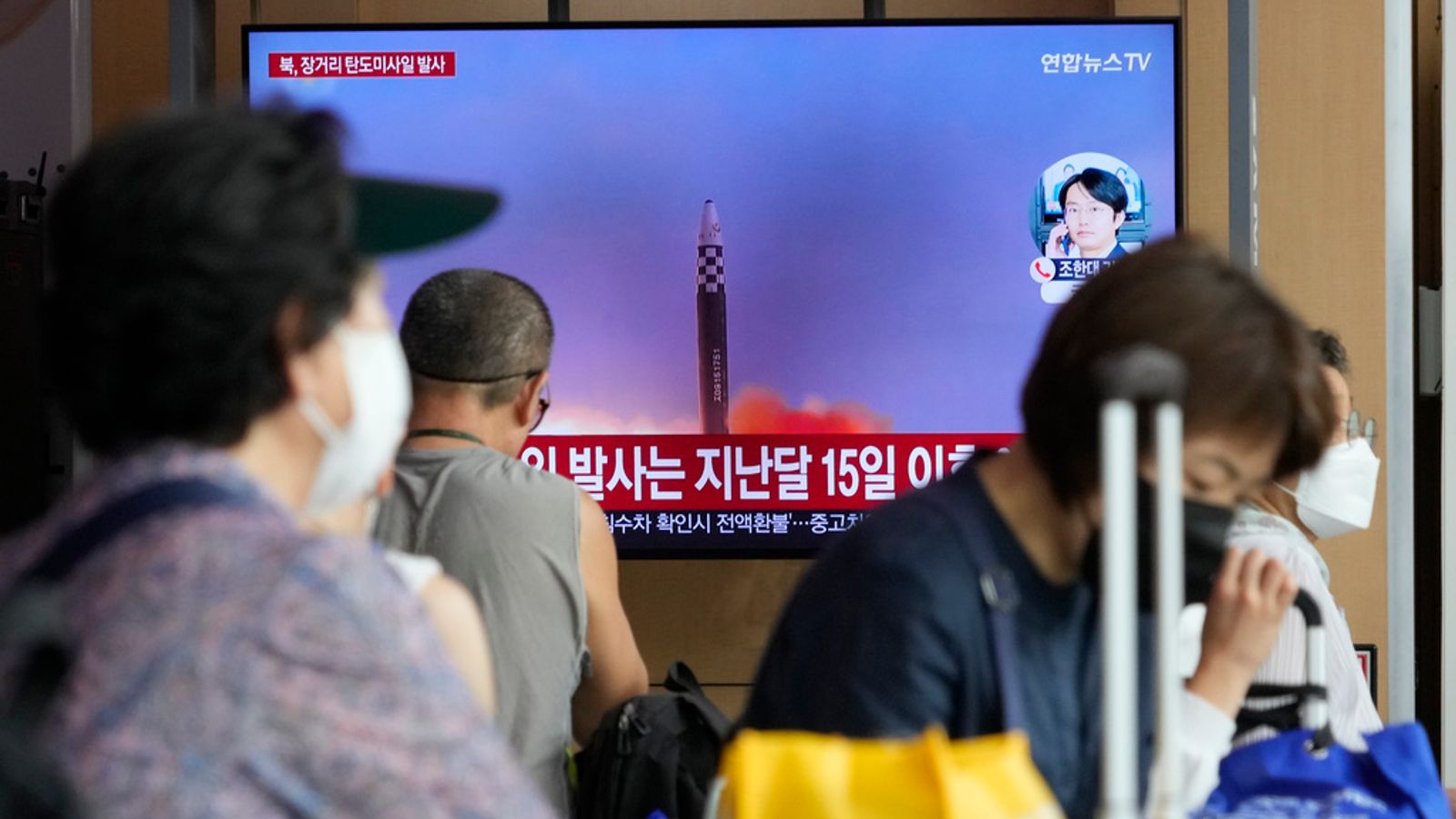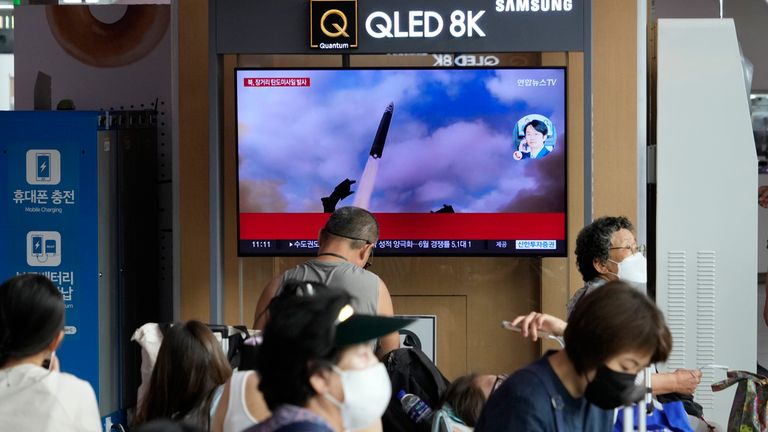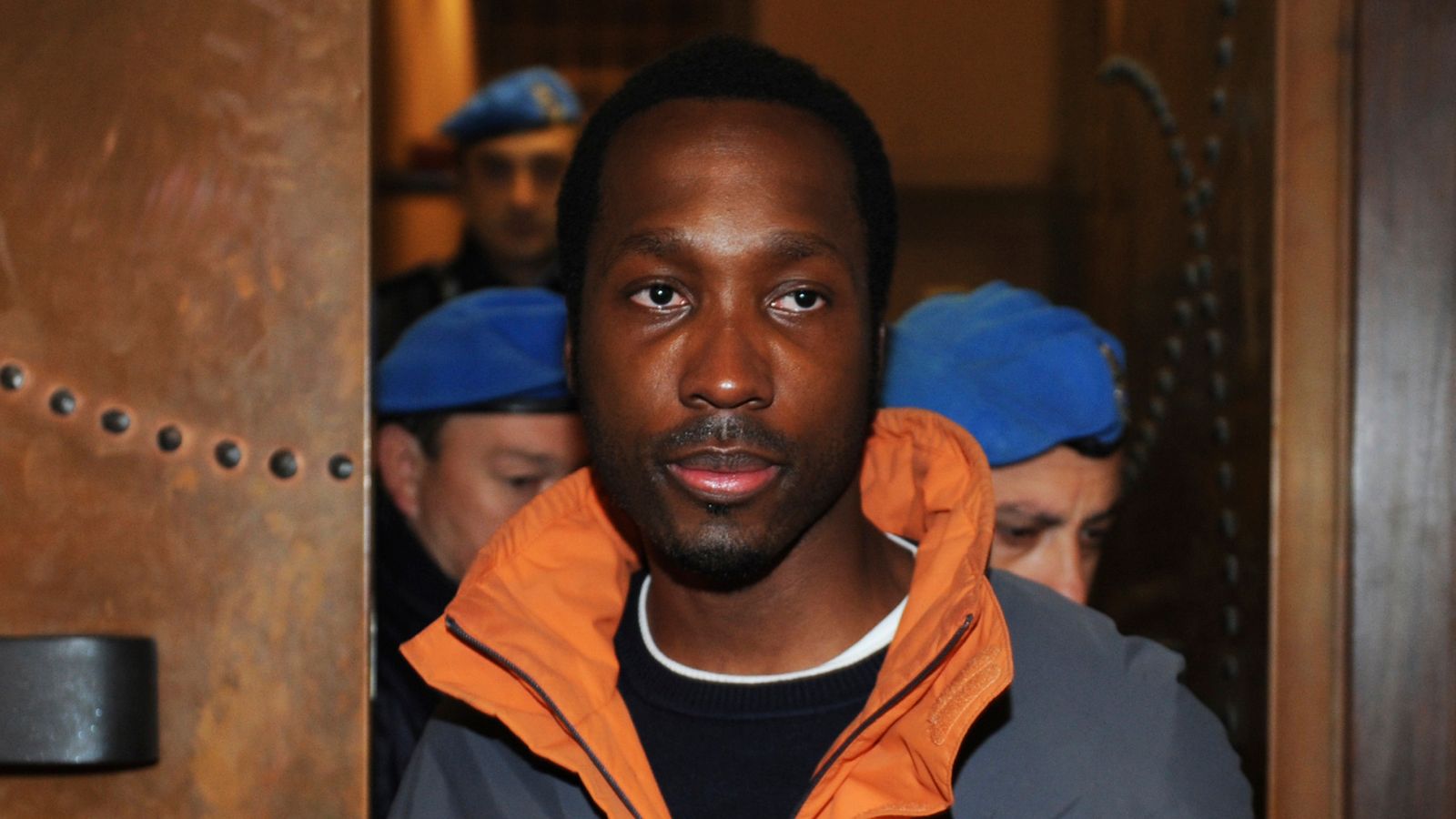
North Korea has fired a long-range missile which flew for 74 minutes – the longest flight time ever recorded.
According to Japanese defence officials, it travelled at an altitude of 3,728 miles (6,000km) with a range of 621 miles (1,000km) before landing in waters between the Korean Peninsula and Japan.
It follows heated recent complaints from Pyongyang that US spy planes have violated airspace.
Japanese defence minister Yasukazu Hamada said that the missile was likely launched on a lofted trajectory – almost vertically – which North Korea typically does to avoid neighbouring countries when it tests long-range missiles.
It was detected by South Korea’s military at around 10am, the country’s joint chiefs of staff said in a statement. It called the launch “a grave provocation”.
According to some experts, the weapon launched was the road-mobile Hwasong-18 solid-fuel intercontinental ballistic missile (ICBM). It is harder to detect and intercept than other liquid-fuel ICBMs.
North Korean leader Kim Jong Un previously called the missile his most powerful nuclear weapon, that would enhance the North’s counterattack capabilities in the face of US military threats.
Japanese Prime Minister Fumio Kishida, is in Lithuania to attend a major NATO summit, ordered his staff to gather information and stay alert to prepare for unpredicted events, according to the prime minister’s office.
He said the peace and stability both of the region and the international community had been threatened as a result of the launch, and that Japan had lodged a protest through diplomatic channels in Beijing.
Mr Kishida is expected to meet with South Korean President Yoon Suk Yeol on Wednesday, and Japan’s chief cabinet secretary Hirokazu Matsuno said a summit was also planned with South Korea, Australia and New Zealand.
“We will respond in close cooperation with the international community,” Mr Matsuno said.
The launch came after North Korea released a series of statements accusing the US of flying a military plane to spy on the North.
Kim Yo Jong, the influential sister of Mr Kim, warned the US of “a shocking incident” in a statement on Monday, in which she claimed the spy plane flew over the North’s exclusive economic zone eight times earlier in the day.
She said warplanes were deployed to chase the US plane away.
In another statement on Tuesday, Ms Kim said the US military would experience “a very critical flight” if it continues its aerial spying activities. North Korea’s military separately threatened to shoot down the spy plane.
Both the US and South Korea dismissed the accusations and urged North Korea to refrain from any behaviour that raised animosities.
Leif-Eric Easley, a professor at Ewha University in Seoul, said the statements against the US were part of a North Korean pattern of “inflating external threats to rally domestic support and justify weapons tests”.
Before Wednesday, North Korea’s most recent long-range missile test happened in April, when it launched the Hwasong-18 ICBM for the first time.













